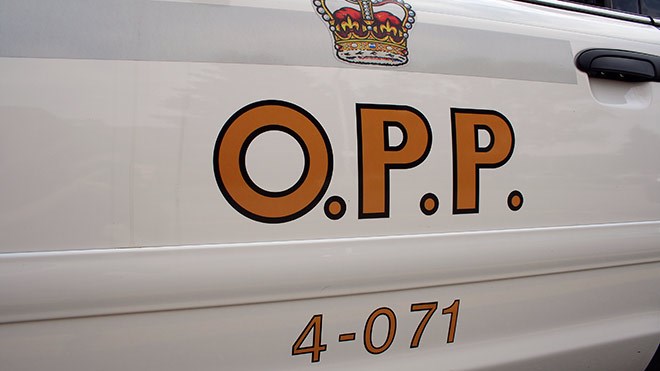An OPP officer has been demoted for a year for going public with his opposition to moving the provincial police service's emergency rescue helicopter from Sudbury to Orillia in 2015.
OPP Sgt. Dan Mulligan lost an appeal of his demotion this month, which stemmed from a letter he to local media opposing the decision.
The case began in spring 2015, when the OPP announced plans to centralize both of its emergency rescue helicopters at its base in Orillia. The move was expected to save $254,000 a year, and allow the force to expand the operating hours of the two helicopters.
But the decision was heavily criticized at the time over fears it would affect service to people in Northern Ontario. The helicopter was often used to locate people with dementia or stranded in remote locations – both common occurrences in Northern Ontario, where the population is older and the land area much bigger.
Mulligan sent the letter to the media in May 2015, outlining his concerns, questioning whether the move would save money and said the decision would cost lives in the North.
In the letter, he accused the OPP of “a classic shell game at best and a very negligent crapshoot with Northern lives (the losses of which are inevitable/irrefutable) at worst.
“As a former Sudbury boy with family remaining in the North, I couldn’t possibly express in publishable words how strongly I object to such ill-conceived relocation of such an important aircraft … The OPP has both a moral and legal obligation to continue to provide what has logistically proven to be the best professional search and rescue response possible to our northern families.”
He signed the letter, “Dan Mulligan, Sergeant, Aviation Services-Helicopter Unit OPP General headquarters Orillia.”
As a result, he was charged under the Police Services Act with breach of confidence for sending the letter, and discreditable conduct for undermining the public's confidence in the OPP. He was found guilty in March 2017 and demoted to the rank of first class constable for one year, after which he would be a sergeant again.
Mulligan appealed the decision to the Ontario Civilian Police Commission on several grounds, including that the hearing officer judging the case was biased against him; that the hearing officer's refusal to grant him full disclosure of documents between the OPP commissioner and a supervisor related to the case hamstrung his defence; and, that the hearing officer incorrectly dismissed his “whistleblower” defence.
Mulligan cited comments the hearing officer made in handing down her decision. In particular, he was upset with her characterization of his actions as being driven by longstanding resentment of his supervisor, rather than by the helicopter decision.
“(He) would like the tribunal to believe he had no alternative but to go to the media because he had no confidence his bureau command staff would listen to his concerns,” the hearing officer wrote. “In my view, the evidence indicated otherwise, so I found this to be a self-serving notion. What I heard and saw pointed to a frustrated employee whose contempt for his supervisor was deep-rooted and substantial.
“Sgt. Mulligan’s evidence persuaded me the relocation of the OPP helicopter was, at least in part if not wholly, a convenient and timely opportunity for him to speak out against the OPP.”
In its decision, the Commission ruled that you can't say someone is biased against you just because they rule against you and don't accept your evidence. A case must be made that a judge made a decision not supported by the law and the facts of the case.
“She drew inferences from the evidence as she was allowed to do,” the Commission ruled. “In our view, her comments, as harsh as they may have seemed, are not sufficient for the appellant to establish actual bias or the reasonable apprehension of bias on the part of the hearing officer.”
On the issue of disclosure, the Commission ruled there's no right to go on a “fishing expedition” and that documents must only be produced if there's a reasonable argument they will impact the case.
The hearing officer ruled that there were nothing in the documents relevant to the case and the Commission agreed.
The bulk of the appeal centred on the whistleblower defence. In her original ruling, the hearing officer wrote that, while she believed Mulligan genuinely thought the OPP helicopter decision would jeopardize lives, he didn't produce evidence that convinced her “this was, in fact, the case.”
Aside from the specifics of the case, the Commission ruled that the whistleblower defence only works under certain circumstances. In particular, it doesn't work when you have a difference of opinion with your supervisors, as opposed to raising flags about a threat to the public.
More important, the defence can only be used if Mulligan had raised the issue with superiors in attempt to settle the issue internally before going public with his concerns – which he did not.
“The appellant’s answer as to why he did not notify his superiors of his concerns was that, in effect, he had a dysfunctional chain of command that would not have paid any attention to him in any event,” the Commission wrote in its decision.
“Had the appellant simply first sent the same letter that went to (the media) up the chain of command, either he would have received a response or he would have paved the way for him to go public with his concerns.”
As a result, both the decision and the penalty were upheld.



